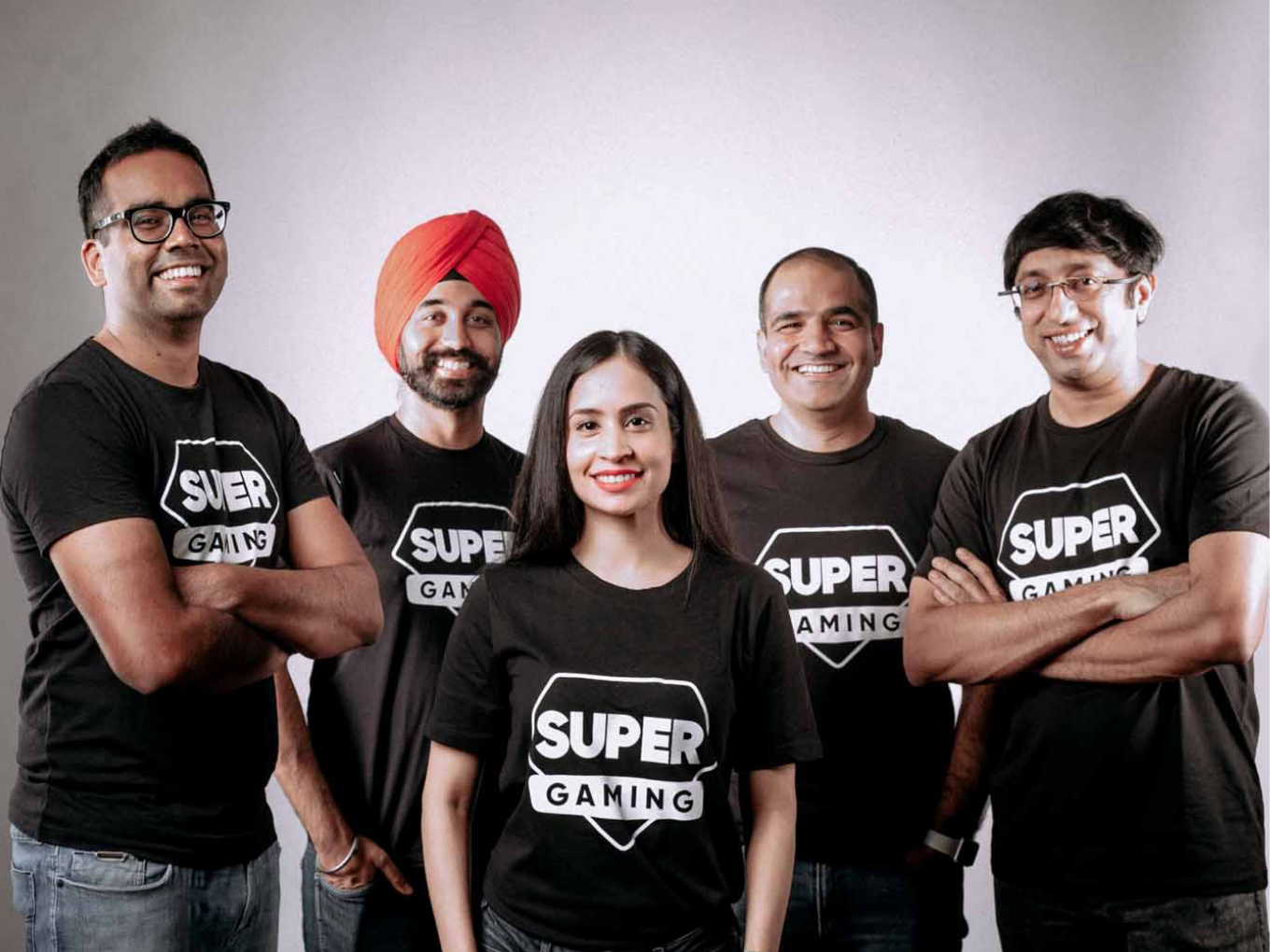Founded by Roby John and four others, Pune-based gaming studio SuperGaming has developed large games such as MaskGan and Silly Royal
SuperGaming’s MaskGan currently has around 62 Mn players, while Silly Royale has 17 Mn
The studio is now building Indus, a ‘battle royale’ game for PCs, consoles and mobiles
When the pandemic struck in early 2020, people worldwide had to go through extended lockdowns and unprecedented social distancing. The sinews of survival were frayed, and there was very little to hold the communities together. Of course, social media turned out to be a robust platform that connected people in those times of isolation. But the role of gaming in creating a new sense of camaraderie, especially among Gen Z and the millennials, is rarely discussed.
Nevertheless, video games now offer new ways to grow a sense of belonging in an increasingly fragmented world. Even in India, traditionally not a country of avid gamers, this sector has been growing faster than social media for the past few years.
According to a report by FICCI-EY, India was home to 390 Mn online gamers in 2021. Although the country added 30 Mn gamers last year, not many new names made it to the list of homegrown gaming studios. Pune-based SuperGaming is one of the few companies tapping into the newfound opportunities in India.
Set up in 2017 by Roby John, Navneet Waraich and Sanket Nadhani, Christelle D’cruz, Sreejit J, the gaming startup aims to build an ecosystem of games, engine platform and a web3 marketplace. With the help of its engine platform called Super Engine, it wants to develop global, hyper-scale and real-time multiplayer games. Besides, it is testing the waters in the metaverse with a web3 marketplace, Tegro, that the startup runs in partnership with WazirX cofounder Siddharth Menon.
Bridging The Demand-Supply Game
“India is known as a very good demand destination. The country has a large number of gamers, but not many companies are producing content. That’s the challenge we are looking at. We want to show that great games can be made in India,” said John, CEO and cofounder of SuperGaming.
John had been associated with the gaming industry for more than half a decade before he started SuperGaming. A BTech from the College of Engineering, Pune, he led an educational gaming company called TaptoLearn for five years. The YCombinator-backed startup had developed several iPad games such as Math vs Zombies and Tiny Countries. He also founded a studio called June Gaming, which eventually merged with SuperGaming.
The Pune-based startup has developed large video games, including MaskGan and Silly Royale, among others. As claimed by John, MaskGan currently has around 60 Mn players, while Squid Game-inspired Silly Royale has attracted 17 Mn users within nine months of its launch.
Last year, the game development startup raised $5.5 Mn in Series A funding from Skycatcher, AET Fund and other investors. Post-funding, the team grew from 50-55 members to 150+ members. Recently, the gaming startup has opened a new studio in Pune. This is its second studio in Pune, the first one continues to be its headquarters.
“The fundraising made us more ambitious about the games we made. Most game developers in India are building casual games like ludo or social casino. But we have focussed on real-time multiplayer gaming,” said John.
According to him, the studio is currently developing Indus, a ‘battle royale’ game for PCs, consoles and mobiles.
“There is no representation of Indian content in the gaming genres, especially in mainstream genres like ‘battle royale’. With Indus, we have decided to adopt an Indo-futuristic take for this segment. The game will be launched later this year, and we are now getting ready for the soft launch,” explained John. The game utilises the Indus Engine, SuperGaming’s fully custom-built sandbox shooter tech stack.
For SuperGaming’s Indus, the focus will be on creating a futuristic society against the backdrop of Indian civilisation, art and culture to offer gamers a fresh yet relatable and immersive experience. As John puts it, the theme will be based on a singular question: What if the Indus Valley Civilisation never went extinct and moved to another galaxy?
Free-to-play titles, cheap data and the large-scale penetration of low-cost smartphones have accelerated the growth of the gaming industry in India. As gaming becomes more mainstream, ‘battle royale’ has proved to be one of the most popular genres in the domestic market. However, most of the popular titles in this genre, including Call of Duty Mobile and Battlegrounds Mobile India, have been developed by global gaming studios.
“If you look at all the games, most of them don’t come from our culture or content. That’s why we have not chosen Western mythology for Indus. We have taken an Indian story, a story of how the Indus civilisation could have advanced,” added John.
In a survey report published last year, RedSeer revealed that the players surveyed indicated a strong preference for games with Indian central themes or characters. The report also showed that Indian gamers’ engagement level had increased, from 2.5 hours per week in pre-pandemic times to 3.6 hours per week post-lockdowns. Currently valued at $2.2 Bn, the gaming market in India is projected to grow at a 30% CAGR to reach a market size of $7 Bn by 2026, the report added.
Interestingly, advertisement remains the primary source of revenue across the burgeoning gaming industry in India. Nearly 85% of the games from Indian publishers included advertisements compared to an average of 73% globally, a report from 42matters revealed.
This is not surprising as India tops the global markets in downloads, ensuring massive access to gamers across the country. But as India tends to pay more and added 15 million paying gamers, in-app purchases will account for a significant chunk of the gaming industry revenue.
The Way Ahead For SuperGaming
With the rapid growth of the gaming industry, India is witnessing the entry of new gaming startups while existing players are scaling up business models and expanding their teams. According to an Indian Brand Equity Foundation (IBEF) report published in January 2022, there are 920 gaming startups in the country.
Although SuperGaming is leveraging India-first content at the right time, other studios are also focussing on India-centric video games. For instance, Mumbai-based gaming startup GameEon Studios has been working on an open-world game titled Mumbai Gullies. In 2020, Pune-based Nodding Heads Games released Raji: An Ancient Epic, inspired by Indian mythology and medieval architecture.
As the gaming studios increasingly focus on local content and more immersive experience, SuperGaming plans to root its growth in an ecosystem of games, technology and a Web3 marketplace. It has already started developing its first game for Web3, said John. Going forward, the gaming startup wants to position itself as the developer of ‘Epic Games of India’ based on its overarching strategy that combines Indian culture and cutting-edge technology.









